Executive Interviews
Our Executive Interviews feature top leaders from across the disciplines that we specialise in, sharing their career advice and experience with candidates seeking success in those sectors.
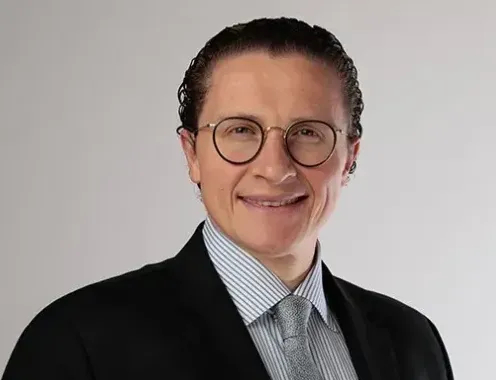
Alexander Albrecht- Finance Director Europe - LECO
What excites you about working for LECO?
We are a global family business that has the advantage of a personal culture where people care about each.
I’m given the opportunity to develop my own ideas and have a lot of freedom to manage the administration of our European Subsidiaries – Finance, Supply Chain, HR and Legal -
How does the business stand out from the market and your competitors?
We have an outstanding sales and service organisation which cares about the customer. Sales does not end with selling an instrument to the customer; it is the aftersales service which really makes a difference for us and we have people who have worked here for some time - I don’t think any of competitors can deliver a similar quality. Furthermore, we have a high level of vertical integration in our production, meaning that we really do a lot of stuff on our own, which is not that common any more – nearly every screw is still produced in St Joseph, Michigan which helps us to control the quality of our products.
What would you say is the most rewarding part of your role?
I would say seeing the success of the company is the biggest reward and seeing satisfaction from the joy of the team working together. I personally find that a satisfying factor.
When did you decide to explore a career in accountancy and finance and why?
At school I was already interested in accounting and I always had a strong tendency towards that; during my studies that sort of firmed this up. I was seeing finance as a backbone for any organisation and this gave me the opportunity to sneak into every corner of a company! I think there is probably no area like finance, where from day one you get to see and get in touch with every area of a business.
Looking back through your established career, what would you identify as a personal highlight?
The biggest highlight for me or the latest achievement which I am proud of is the reorganisation which we have done here. LECO Europe has been an established company, but the question asks re. established career, and I don’t know if I am at the stage to call it an established career! I can tell you for sure that over the last years we have been driving a change process to renew the organisation and to bring in fresh blood to change processes and this is one highlight for me. We are looking nowadays at a very modern organisation with a small shared service centre and centralised distribution. I am proud of that we have been successful in completing these projects.
What would be your advice to someone aspiring to be where you are now?
The base is always skills. You need to get the base right, because if you don’t, you won’t have a clue and it will be difficult to get into a good career, no matter what you do. It is also about commitment and ownership; that is what makes the difference. I am 100% engaged with the company and companies I have worked with before and that ownership and drives becomes visible to those people around you. That is the path for your career.
Listen to the people around you and show some patience sometimes. Just reflecting on myself here; for people who want to have a quick career most of the time they lack the patience that is sometimes necessary to do the next steps and sometimes only a month makes a difference. Sometimes they are too impatient to change job and they are destroying their careers by doing that.
You have worked for small companies and large business, what would you say are the advantages and disadvantages of both?
I think to rate something as an advantage or disadvantage is down to the person themselves – there are visible differences, and everybody needs to decide for themselves if they see it as an advantage or disadvantage.
One key factor is speed and flexibility; decision processes in small companies in general happen more quickly than larger organisations and that makes them faster to react. Nowadays you see that a lot of larger organisations try to build up their own accelerators to achieve that flexibility and reaction. The other thing is clearly the personal factor, if you are working in a multinational company with 1000-2000 employees there is a good chance that the CEO, CFO soon will know your name. In companies with 50.000 employees or more, you are quickly becoming a number.
When you decide to go for a smaller business you should be ready to change a bit of your style of working as usually small organisations require more flexibility from you. I have seen people coming for interviews from bigger businesses and they are used to structure - there is a person and process description for everything. In a smaller organisation that is not something you can necessarily expect and there is more flexibility requested from you in your day-to-day role and you need to be prepared for that.
Who is your most inspirational person in business and why?
Someone I worked with was one of my first mentors and later on a supervisor and manager of my last job (he was very senior). He had a certain business philosophy which gave me a lot and I still reflect on nowadays. That would be an inspirational person from my career.
If you talk big names, two names always turn around in my mind – Richard Branson (Founder of Virgin Group)and Dietrich Mateschitz (Founder of Red Bull). Both achieved major things in terms of building brands and so on, and what is more inspiring is that both of them are 70+ now and they still have a massive energy to drive and be engaged in their business and they are still innovative still at that age; I find that inspiring.
What books / blogs are you currently reading? What book could you recommend to accountants that are wanting to progress?
I have just finished a book called “Don’t Stop the Carnival” which is quite an old book and placed in the 1960/70s by Herman Wouk. It is about a Caribbean island and a guy from New York who wants to disconnect. He buys a hotel there and it is about all the difficulties in this environment and culture, very far from what he is used to in New York. It’s quite interesting and was recommended to me by a friend who lives in Barbados. Life looks nice, but it is very different. Read that book and it will tell you a lot about the day-to-day life.
I also look at books on personal development – 7 Habits of Highly Effective People may not be for everyone, but you need to open your mind for those things before you read them.
Do you have any hidden talents?
Not that I have discovered so far. I still have the hope that when I retire I will be able to go on a senior golf tour and be a good golf player but I am not sure that talent will develop!

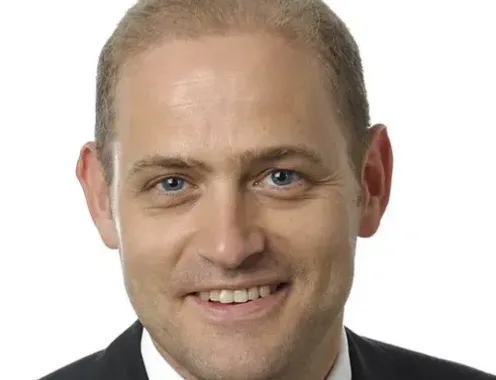
Thomas Staehli, Finance Director - Loomis Schweiz AG
To get started, please could you tell us a little about your background?
Second thing to focus on is your goals. If you know your long term goals, try to work towards them as early as possible. In my case it was a different path. In some ways it was positive because I gained a broader picture of the world - gaining different skills, a different mindset to those focused on one area - but nevertheless, focus on your goals and know what you want from life.
Third, consult with experienced people. Try to get in touch and keep in touch with people who are better than you and try to learn from their experience, and mistakes as well. Try to get as much as possible out of them and apply to your own personal career.
Looking back through your established career, what would you identify as a personal highlight?
What are your personal motivators?
How did you get to the level you are at? What great decisions do you believe you have made throughout your career and what risks have you had to take?
1. Quitting my job before my current job. This was definitely a risk with family to provide for, but I was confident that it was the right decision - and it was.
2. When we moved to the US. We have two children; our daughter was 3 years old and son 3 months. My wife left her well-paid job here. My salary was much lower than in Switzerland. Financially and career wise it was a risk. In the US they are not waiting for young Swiss people to come to work, they have their own great candidates there. You have to make yourself stand out. It was what I wanted. I probably didn’t have the same support as ex pats; I had to do my own tax filings there and find my own apartment there for the family. It was also a good experience. I specifically chose Deloitte because I thought I may have this chance later down the line.
Can you identify how your organisation stands out from the market and your competitors?
I also have the type of businesses that I wouldn’t work for, but as long as you can ethically support the business, why not work for it?
Be flexible in terms of position. You have to change career sometimes. You may not have the position or salary level you envisaged, but here in Switzerland everyone is relatively well paid, so why not work for less during a certain period of time. I was always flexible in that respect, therefore I would recommend it. Just because they had a certain level in a previous job, why not be open and adjust to a new reality when it is not possible to gain as much anymore.
I understand it is not easy, but it is better to work for less than not at all.
Describe yourself in 3 words
Flexible, reliable and open-minded.
In my view the only resource that increases in value if you share it is knowledge. Any other resource divided, you end up with less. Dividing knowledge increases its value for everybody.

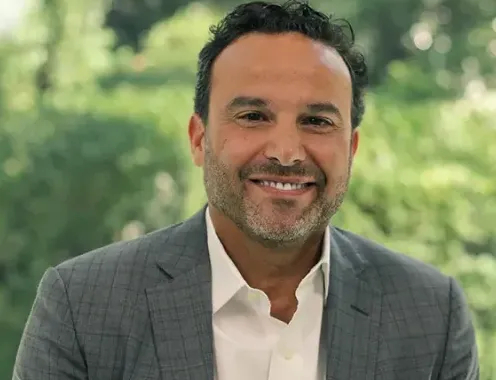
Nicola Scampoli - SVP Corporate Finance & Procurement at SWAROVSKI
I observe an oversupply of qualified talent in Finance and an undersupply in the Procurement market. My observations rely particularly on the turnover of staff and recruitment.
I have a broad role in an attractive, globally operating company that keeps me interested and challenged. I have the opportunity to deep dive in certain areas of interest (e.g. M&A and investments) and I can make use of my education, languages, skills and experience in a free-to-act working culture.

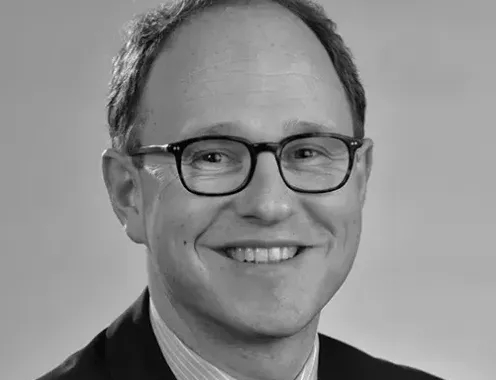
Stephan Gaemers - Tax Director at TIP Trailer Services
Looking back through your established career, what would you identify as a personal highlight?

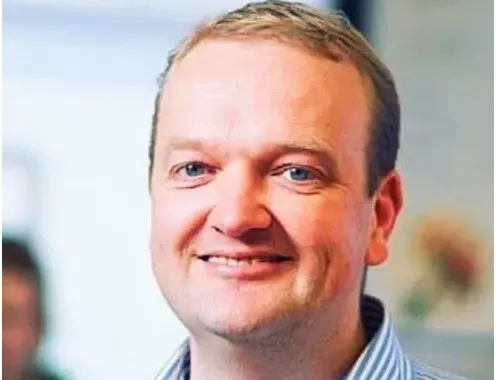
Ralph Geertsema - Program Director Digital at LeasePlan Nederland
You started your career in Finance and have moved into a more Technology led role. When did your passion for Technology and Transformation begin and why?
Many people will underestimate the effort it takes to achieve a true step change; you can’t buy what they have done, you can only earn it. Having done a number of these transformations and knowing how hard it is, I value the outcome even more.
What does this cross-functional transformation then really mean? If you want to change the world of Finance, then you need to take the rest of the business people with you. The effectiveness of the change sometimes evaporates because you aren’t taking the rest of the organisation with finance. You hit the efficiency target, but the effectiveness of the process goes out the door. Working together with people across the business is essential; you may want to change the Procure to Pay procedure for instance, create and receive an order close to where the action really happens, rather than a distant office.
This is really where technology can help us these days, because of these magical brilliant computers we have, which can help and automate with Artificial Intelligence. It’s about bringing the simple transaction to an easier solution and bringing the transaction to a complete end result.
There is a lot of press around Blockchain at the moment and when I go and look for the program team now I struggle to find them. And even sometimes we find out they may no longer be involved and now left! So, we can all see the opportunity, but we can’t see too much in the results yet. For me it is a bit like Data Analytics of 5-8 years ago or so. We knew we could analyse data really well, but weren't sure how to create business value. It took the best of 5 years to bring business solutions based analytics before we really saw things come into fruition.
Also, this journey is far from over and will take a number of years before data-driven decision making is part of everyone’s day-to-day working life.
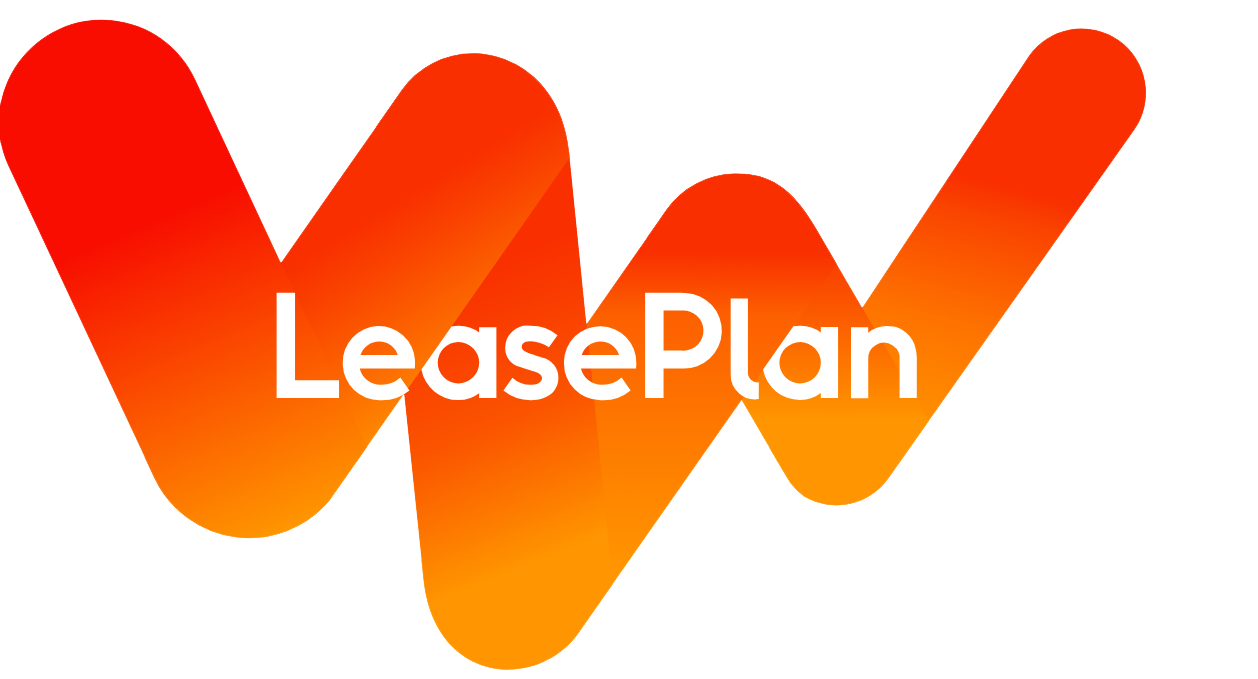
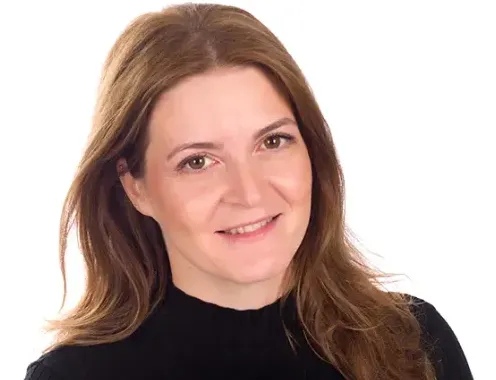
Antoaneta Ignatovska - CFO at Crowd Mobile
What excites you about working for Crowd Mobile?
Firstly, it’s the team - because we have a very young, energetic and diverse team. Also, being on the forefront of the online marketing and influencer industry, we have a team and company who are always thinking about the future and how to excite global customers and help them to make the right choices. This really motivates me. People are becoming more and more sophisticated in the way they make choices, they are more focused on the things they like and more selective. If we can help them make the right choice – I’m excited about this opportunity.
I also really enjoy the travel aspect of my role. I was in Australia recently for an industrial roadshow, which I attended with the CEO, and it was really exciting to see how people want to hear your story and get excited about it. It was a good chance for one-to-one meetings.
What does your organisation currently do to contribute towards the corporate social responsibility?
We are a small organisation and what we’re trying to work on is CSR which is meaningful to the company and the employees. For example, for us diversity is a very meaningful value and culture. We have over 30 different nationalities in our company and we’re definitely targeting a lot of efforts towards developing, growing and mentoring people. We started several training programmes recently, particularly mindful of the millennials in the business, to develop additional skills and grow further. Also, as management we are focused on progressing more females into senior positions.
As someone who has had many years working in Amsterdam, what changes have you seen to the employment market, particularly within finance?
It’s really competitive, especially in recent years. I’ve seen companies, especially the big and exciting ones, opening offices here because it’s a very innovative and very dynamic environment. In recent years Amsterdam has really become one of the best places to live and work in Europe. Sometimes I have found that the biggest struggle in recruitment is to find the right finance people with the right skillset, but also the right mindset - willing to learn and change. Adaptability is key. The bigger names can be more competitive and are attracting good candidates in finance and tech.
As a woman who is successfully working in a CFO role, what challenges have you faced throughout your career and how did you overcome them?
Mostly, I think, to be heard. It happened a lot in my career, both internally in the companies I’ve worked in and externally, that I’m the only female in the room. Also now during meetings, for example it happened a lot during the roadshow, that I’m sitting opposite male investors or analysts. So, for me, I think there’s a lot to be done in diversity in finance, particularly in senior positions and it comes from the fact that women don't like confrontation as much or to overpower anyone else’s opinion, so sometimes they are a bit more silent. I have tried to overcome this by contributing and giving my opinion. I think my advice would be to make sure that your message is heard – don’t be apologetic as there is a reason that you are at the meeting or have a seat at the table.
You have worked for both large and smaller businesses, what are the advantages and disadvantages of each?
The big organisations give you an opportunity to work on a larger scale and technically more complex or sophisticated projects, so this is where it’s usually interesting and challenging. The disadvantage can be that it can be more bureaucratic and layered and so decision-making processes can be much slower and more detached. In a small organisation you have the opportunity to make a huge impact; your reach is much broader and you can have an impact, but some small organisations struggle to scale and grow and this can be a disadvantage.
What would you say is the most rewarding part of your role?
Being able to build teams, the finance function, having an impact on the whole organisation and being relevant. I really enjoy things like that. I was lucky enough to do this in most of the companies I’ve worked for. I also really enjoy trying to open doors for young finance professionals, especially those who are female, to help them to grow and take a step up.
What have you noticed are the main challenges in recruiting?
If you think about financial people nowadays, you don’t need to be what traditionally finance people were years ago, only focused on historical numbers, reports and monthly close. You need to have a very different skillset, where you build relationships with the business, where you are able to translate and build a bridge, a common platform with the business, to be able to support it. You also need to be tech savvy – to be able to innovate and change the way you work rapidly. This is also something that finance people do a lot – they pick the tools they know, the traditional tools they use, but nowadays things change so fast that it’s key to change your mindset.
What would be your advice to someone aspiring to be where you are now?
Persevere and be curious to learn always. What I’ve noticed for me, is that the road is never a straight line, there’s always a detour or a step backwards or sideways. It’s important to do what you think is right. Be always curious to push boundaries and to jump into the unknown, outside of your comfort zone.
Which 3 words would you use to best describe yourself?
Approachable, no-nonsense and curious
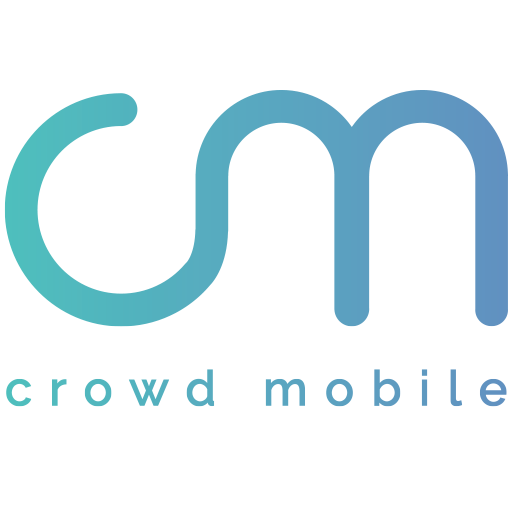







You can also use your social account to sign in. First you need to:
Accept Terms & Conditions And Privacy Policy